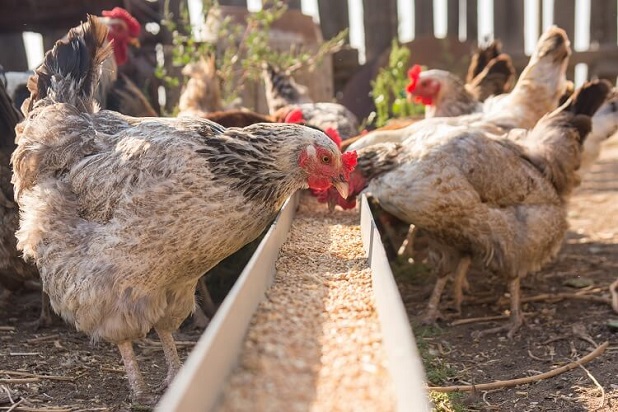The East African Court of Justice has validated the defence by the government of Kenya in a case in which lawyer Male Mabirizi is challenging a ban on maize and poultry products from Uganda.
Mabirizi sued the Kenyan government on March 11, 2021, challenging directives issued on January 14, 2021, and on March 5, 2021, by the Agriculture and Food Authority of Kenya banning the importation of maize and chicken products from Uganda. The directives were reportedly based on studies that had shown that the products contained mycotoxins and aflatoxins beyond the permitted levels.
Mabirizi also challenged an Internal Memo issued on January 14, 2021, by the Director of Veterinary Services in Kenya, banning the importation of chicken cuts and eggs from the East African Community. He told the court that the ban on the importation of goods from EAC partner states is unlawful and infringes the operational principles of the community, which among others, encourage free movement of goods, transparency, democracy and rule of law, account and equitable distribution of benefits.
Mabirizi asked the court to quash the directives and issue a permanent order restraining Kenya from implementing its directives on grounds of being illegal. But while the Kenyan government submitted a response to the petition in time, there was a delay in serving Mabirizi with the same.
He, on the basis of this, sought to strike out the Kenyan defence for having been filed late. He argued that he was served on May 3, 2021, after the expiry of the 45-day timeline required by law.The court heard that the said days started to run on March 12, 2021, and expired on April 25, 2021.
He said that failure to comply with the timelines set by the Rules renders the response null and avoid and asked the Court to Strike it out. But the Kenyan government opposed the application saying that they failed to comply because of COVID-19 restrictions and measures. At the time, they argued, their office was locked to allow fumigation to take place.
They added that even after fumigation, the structure of working in the office was changed to a rotational basis and it took time before the officers could settle which also incapacitated the serving of the response in time. They said the delay was a result of an excusable ground.
The Court presided over by Principal Judge Yohane Masara on Friday dismissed Mabirizi’s application and validated the response of the Kenyan government saying that the delay was excusable. They added that the Kenyan government filed the response on time but only delayed serving the petitioner, an issue which doesn’t constitute inordinate delay.
“In addition, we do not see how the applicant will be prejudiced if the respondent’s late response was to be validated in the best interest of justice. Considering the issues arising from the statement of reference, it is only fair and just that this court hears the respondent on the same before making a determination thereof “, said the Justices.
In its defence, the Kenyan government says it banned the said commodities to protect their farmers who were recovering from the effects of the COVID-19 pandemic from competition as well as to prevent the dumping of toxic chemicals, substances and hazardous wastes within the community.
According to Kenya, Uganda also put in place tariff measures that make their poultry products uncompetitive while it enjoys unhindered access to the Kenyan market.
For instance, the evidence submitted shows that Uganda was charging Kenya poultry meat Value Added Tax of 18 per cent and withholding tax of 6 per cent, one per cent of infrastructure levy, six per cent withholding tax on processed chicken meat and another six per cent tax for broilers and layer day old chicks.
The Nairobi administration argued that Uganda made it very difficult for Kenyan products to access the Ugandan market which led to the dumping of poultry into the Kenyan market.
-URN





